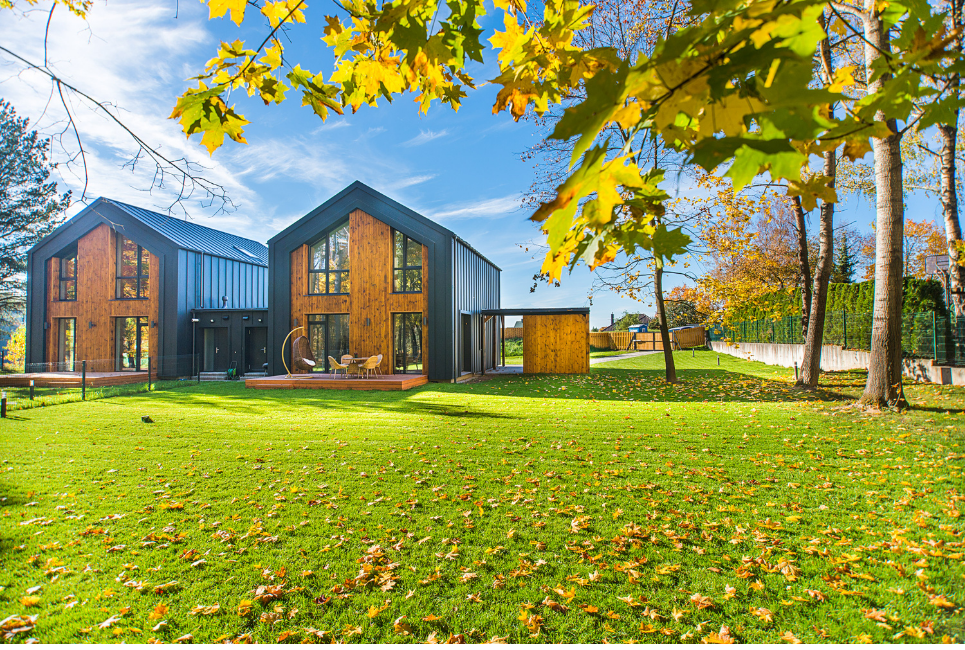- Popular Types of Bermuda Grass Explained - April 21, 2022
- When to Mow New Grass - April 18, 2022
- Best Troy Bilt Push Mower: How to Find The Right One - April 25, 2021
There is no other great feeling than that of greener and healthy grass that you see when you get out of your house. Perhaps you have seen it somewhere, and that’s what has moved you to know the best grass to grow in Georgia.
The northern part of Georgia will ultimately be suitable for different grass from the one grown in the southern region. You will have to consider temperature and rainfall, mountains, and some other unique before picking your seeds.
However, there are several factors to put into consideration before you know what grass seeds are best for you. Then the most important factor that significantly influences the growth of your grass is climate.
In Georgia, the microclimate can make growing grass processes challenging and even hard if not impossible. There are several different weather and climatic conditions. This makes it even necessary to ensure that the grass you intend to grow won’t fall out.
We will be matching grass with either cold or warm seasons to make it easier for you to choose.
Two Types of Grasses Based on Seasons
Cold season grasses
They are grasses that are tolerant of cold, and they never do well in a place experiencing high temperatures. Cold season grass tends to do well in cold temperatures between 60-70 degrees Fahrenheit.
In the slightest increase in this temperature, cold season grass dies and recovers during winter when the temperature goes down.
If you can water them regularly, the better and they like humid conditions. They may take time to grow but vary with different types.
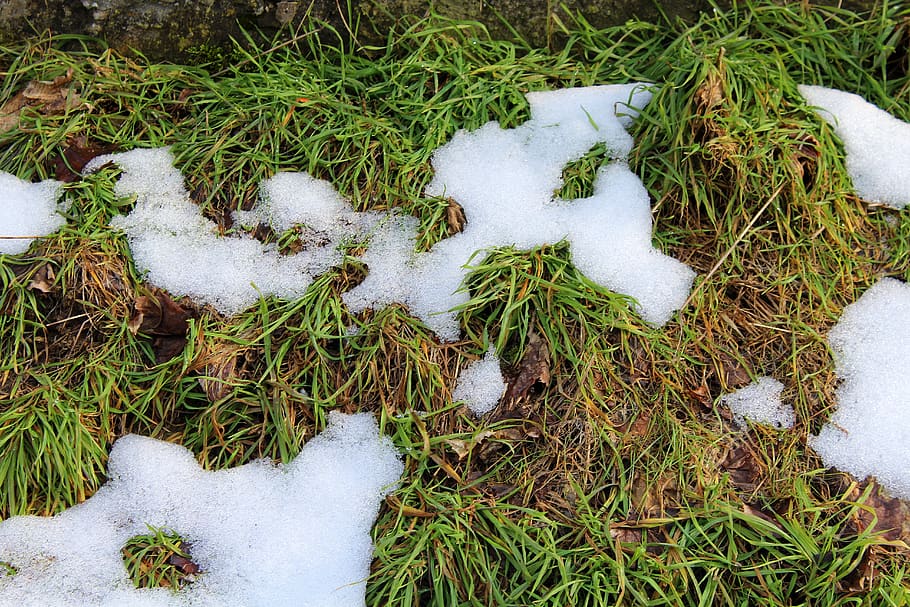
Warm-season grasses
They are more tolerant of higher temperatures with some of them being drought tolerant with the ability to withstand the long sunnier day. Just like the cold season, they may be dormant in winter with temperatures under 65 degrees Fahrenheit and revive again during summer.
This is the reason why, mostly in northern Georgia, it is an everyday activity to find people growing warm-season grass during the cold season. Such a right timing sees to it that your lawn remains green throughout the year.
There are factors you need to consider before choosing your grass seeds, and they are as follows.
How to choose the right grass seeds
Wear and tear
Consider the magnitude of the footfall that you will subject your grass too, then know the right grass after determining the level at which they get damaged. Why?
Because it means if you select a grass type that will get a brown, patchy spot, or dry out due to climate, then you will get disappointed.
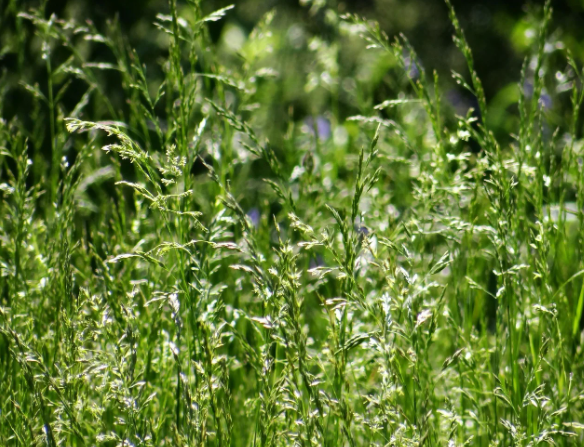
For example, if you have children who like praying on the lawn, the best for you will be Kentucky grass but not Fine Fescue. Such grass holds up patchy spots because it is self mending with the grass creeping in and feeling in the holes.
But you will need to do extra mowing and more fertilizer for it to look its best again.
So consider the level of activity over the grass before you buy it.
Shading level
Shading affects the level of sunlight exposure. It means that if you are planning to grow it under the shade, then the grass you choose should be shade tolerant for good health. Otherwise, you will grow it without success if you won’t consider the grass at that level of sunlight exposure.
Some grass types like fescues are suitable in the partial shade while others like bermuda grass won’t grow at all under anything less than full sunlight exposure.
Lawn urgency
How urgently do you want your lawn? Is it so soon or you are not in early? The decision is either you choose grass seeds or ready roll.
But to choose between the grass seeds or ready roll, you need to bring the decision down to how urgent you need the lawn and how much time you are willing to avail of time for maintaining the germination.
If you want the yard so soon, then go for the ready roll and if you aren’t in early, consider grass seeds.
Soil PH
Before you buy your grass seeds, you need to consider the pH of the soil you intend to grow your grass.
Your soil PH greatly determines if your grass thrive patchy or tired. If your soil PH is between 6 and 7.0, we recommend growing turfgrasses as they tend to do well in soil with on other ranges.
Now you wonder how you can measure the ph. It’s so simple, divvy up the soil from the site, collect samples and data then send them for further testing.
Cost
There are varieties of seeds in the market from different manufacturers selling at different prices. There is always a reason or reasons why the same product sells at an additional cost.
I know you have guessed it right. The high-quality product always comes with high prices and vice versa.
If you want healthy grass, stop going for the cheap in the name of cost. Remember cheap is always expensive.
Best grass seed for warm-season
Bahiagrass
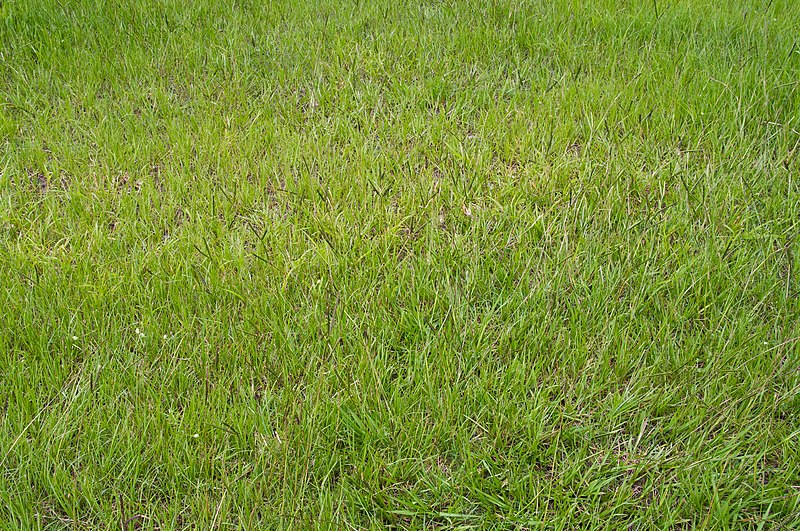
Bahiagrass is suitable for the warm-season in Georgia due to several reasons that include the ability to tolerate sun, sandy poor, and low nutrient soil.
It thrives well in those conditions although others struggle and some die under the same conditions. However, it grows well under direct sunlight so it will be a disaster if you grow it under shade.
It is drought tolerant due to its deep root that can go deep down to look for water. It grows a coarse texture, and you can leave it to grow for 2-3 inches to grow a softer lawn.
Pros
- Course and softer lawn
- Tolerant to drought
- Withstand traffic
- Performs best
- Value for money
- Grow thick
Cons
- May fail to grow
Zoysia grass
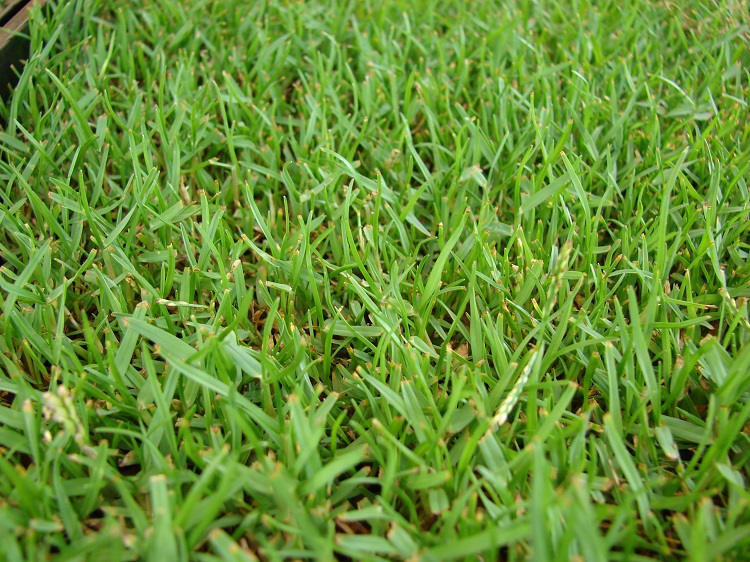
Zoysia is the best grass you can grow in Georgia, meaning it is the most favorable for homeowners living in Georgia. They are softer compared to other varieties they compete and grow with, a character that makes them feel more comfortable underfoot.
Although It might not stand up to the roughest wear and tear zoysia grass is relatively hardy. We have a variety of zoysia grass sold in Georgia, but the availability varies with demand.
Pros
- Beautiful and eye-appealing lawn
- Tolerant to heat drought, partial shade, and colder temperatures
- Durable and long-lasting
- Low maintenance lawn
- Feel softer underfoot
- Water-efficient
- Maintenance better color in cold
Cons
- Hard to establish
- Dormancy and thatch
Carpet grass
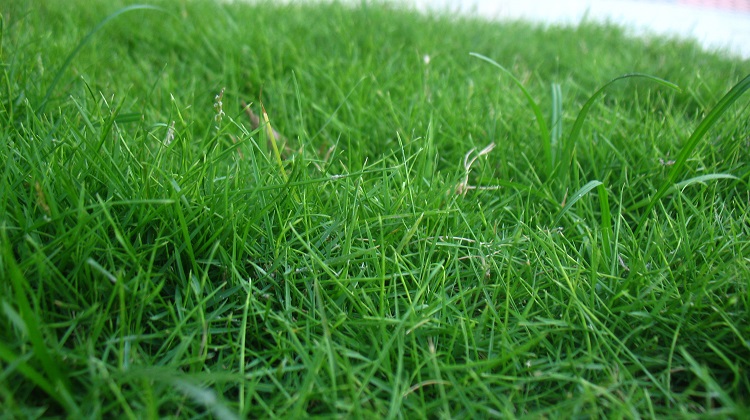
Carpet grass is the right choice for the central and southern areas of Georgia State. It can grow, spread, and fill the nearby places if at all you allow. It requires little maintenance since it doesn’t need you to fertilize it frequently and grow well in both heavy and sandy soils.
If you are a busy person, this grass may not fit you because it goes into seeds quickly and would need mowing now and then.
For the people living in the wet areas of Georgia, this is the best grass for you as it’s tolerant to moisture compared to others. It can also grow in a low area or another place receiving relatively little rain.
However, it can thrive well in direct sun or under partial shades and not full shade. If you grow it under a full shade, you will be forced to expose it at least for two to three hours daily.
One downside of the grass is it grows course slightly and becomes less soft underfoot. This might not be the best option if you intend to be sending your kid to play on the lawn.
Pros
- Grow well in low fertility
- Rarely needs fertilizing
- Do well in moist soil
- Weed resistance
- Low maintenance grass
- Self-repairing grass
Cons
- May not feel softer underfoot
- Best cold season grass in Georgia
Best grass seed for warm-season
Kentucky Bluegrass
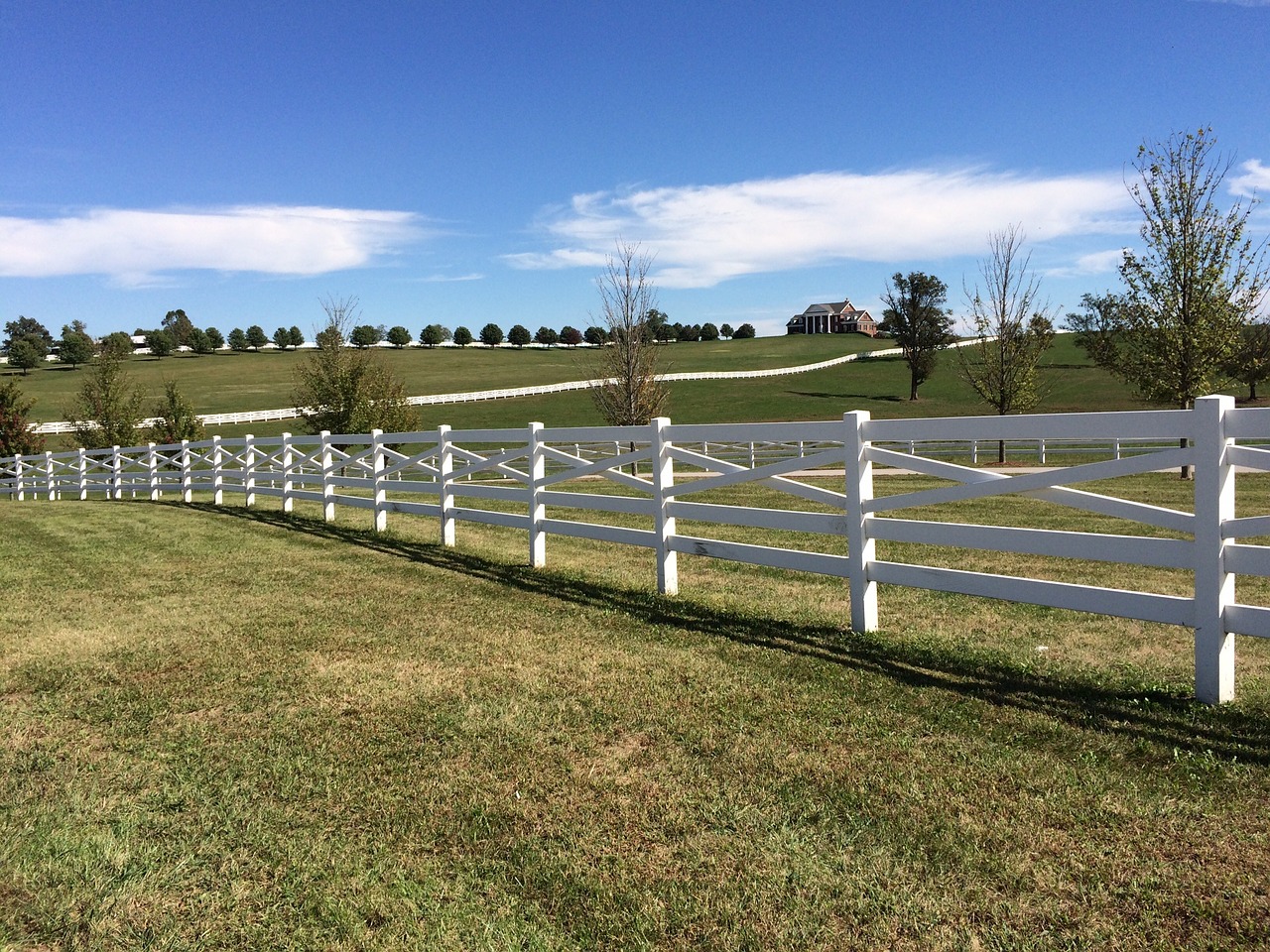
Kentucky bluegrass has many varieties of grasses that are heat tolerant such that they can be grown in northern parts of Georgia, but they considerably do well in as well in the southern part of the state.
This is the grass topping the list of the most beautiful grass for the lawn. If you are looking forward to having a beautiful looking lawn, bluegrass is your only option.
It is preferred mostly because of its texture, and it is popular among people who like spending time outside during colder seasons.
Pros
- Grow well in both light and full shade
- Adapts well in most conditions
- 4 in 1 waterSmart plus coat absorbing more water than uncoated seed
Cons
- Older versions are susceptible to leaf spots.
Fescue and Fescue blend grasses
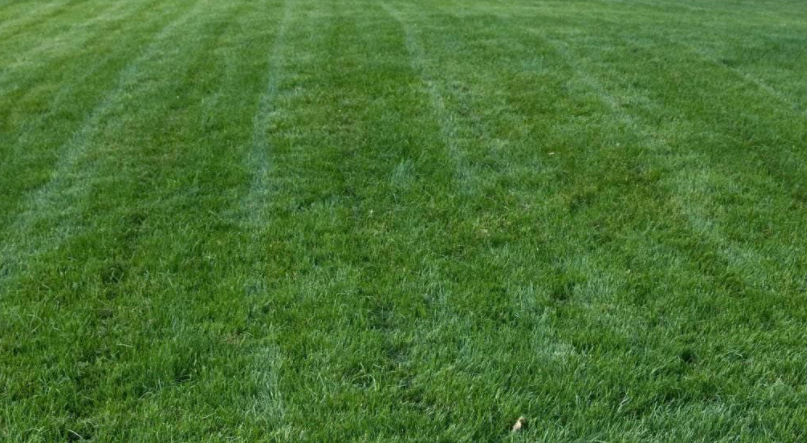
Fescue grass is the most popular grass when it comes to cool-season grass. Fescue grasses are relatively hardy and can quickly take over your lawn for the warm season when they go dormant. If you are looking to repair your lawn, Fescue coupled with zoysia and Bermuda can correctly give you a brighter and greener lawn year-round.
It does considerably well in shady conditions and can grow taller during summertime provided you grow it under shade.
Fescue also has a wide range of varieties compared to other lawn grasses because it has been grown specifically to meet a wide variety of standards. When you are purchasing, ensure you don’t get Fescue meant for other parts than the northern region.
Pros
- Requires little or no winter maintenance
- Withstand heavy wear and tears
- Requires less ditching
- Maintains green color in extreme conditions
- Easy to spread
- Value for money
Cons
- May require overseeding during summer months.
- Susceptible to brown patches during hot months
Perennial ryegrass
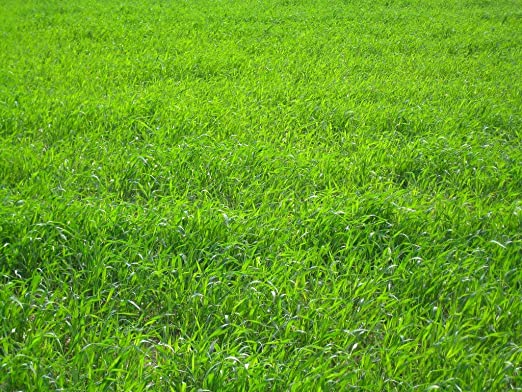
Perennial ryegrass is a grass meant for temporary cool-season turfgrasses throughout Georgia.
If you have a newly established lawn, you can use Perennial ryegrass to cover the newly established lawn; this grass is to provide a greener cover on warm grass during the winter.
However, take care when overseeding as it can damage the warm season grass, but only proper management is not allowed.
There is one most common problem with perennial ryegrass. Its growth is considerably clumpy and difficult to spread. It means that together with the rapidly growing, it can seem spotty and patchy and require extra maintenance to fill.
However, there is one solution to this. You are advised to do reseeding on the barren areas as it likely won’t fill naturally. It is well suited for the shade region but does well in sunnier places like in the cold areas like Georgia.
Pros
- Germinates rapidly
- Can be blended with other variants
- Resilient and durable
- Low maintenance
- Resistance to many diseases and insects best for areas with heavy traffic
- Pale color but still looks beautiful.
Cons
- Difficult to the mower with cheaper lawnmowers
- Vulnerable to cold temperatures
- Texture can be unpleasant.
FAQs
Answer: The fast-growing grass includes rough ryegrass bluegrass and tall fescue. With ryegrass, it only takes five to ten days to germinate and yield and establish turf of shiny; fine-textured, green blades all within five to ten weeks after sowing.
Answer: Yes, raking is essential. For the seeds to germinate properly, seeds must be in contact with the soil.
Answer: The fast-growing seed mixture contains annual ryegrass grass that is considered the fastest germinating grass seed variety. However, a lawn grown from the seeds is possible to oversee with any black-grass mixture to give a thick beautiful yard that will serve you for a long time. These fast germinating seeds take between seven to ten days.
Answer: The toughest grasses that you can grow include grasses like common Bermuda, and zoysia. These grasses have a trailing growth trait that can withstand heavy foot traffic and does better than cold grasses like fescues.
Answer: No, morning dew is never enough water to quench the thirst of your lawn.
If you can see that the soil is too dry, then it means that’s the right time to water the lawn because there is a lot of evaporation that has taken place, increasing the amount of moisture in the air thus soil on your lot will retain water a long time.
Answer: The best solution is to grow the best grass that grows in the shade. And the best shade tolerance grass to choose from are St. Augustine and zoysia-grown in warm-season grass.
Answer: Fescue which the Cold season grass is the most shade tolerance grass you can grow in Georgia. You can also consider those other grasses that can be grown throughout the state including zoysia, centipede grass, and bermudagrass.
Answer: Following recommendation and directive from professionals, you should aerate your lawn in may- august. This is a great idea the moment the yard is entirely greened and ready for the dry season.
If there will be insufficient watering of the newly planted seeds, germination will be delayed and take longer to germinate. It means that if there will be no water at all, seeds may never sprout.
Answer: For you to keep the grass moist, you need to maintain a watering routine of ten minutes per session. With the growing and flourishing of your lawn, you can keep on watering more profoundly but less frequently hence encouraging the roots to grow deeper into the soil.
Conclusion
I’m assuming you have read and are armed with sufficient information. I believe beyond any reasonable doubt that you can make an informed decision on what grass suits you most depending on the purpose and need.
That’s your best choice as far as you are concerned. And as you know everybody has their views and opinions, here are my points about the list.
Bahiagrass remains the best grass for me during the warm season. It can tolerate sun, sandy poor, and low nutrient soil. It thrives well in those conditions where others struggle, and some die under the same conditions.
On the other hand, my best grass for the cold season is Kentucky bluegrass because it has a variety of grass that is heat tolerant such that they can be grown in northern parts of Georgia.
This is the grass topping the list of the most beautiful grass for the lawn. If you are looking forward to having a beautiful looking lawn, bluegrass is the only option.
Read more about finding the best grass seed if you live in:

